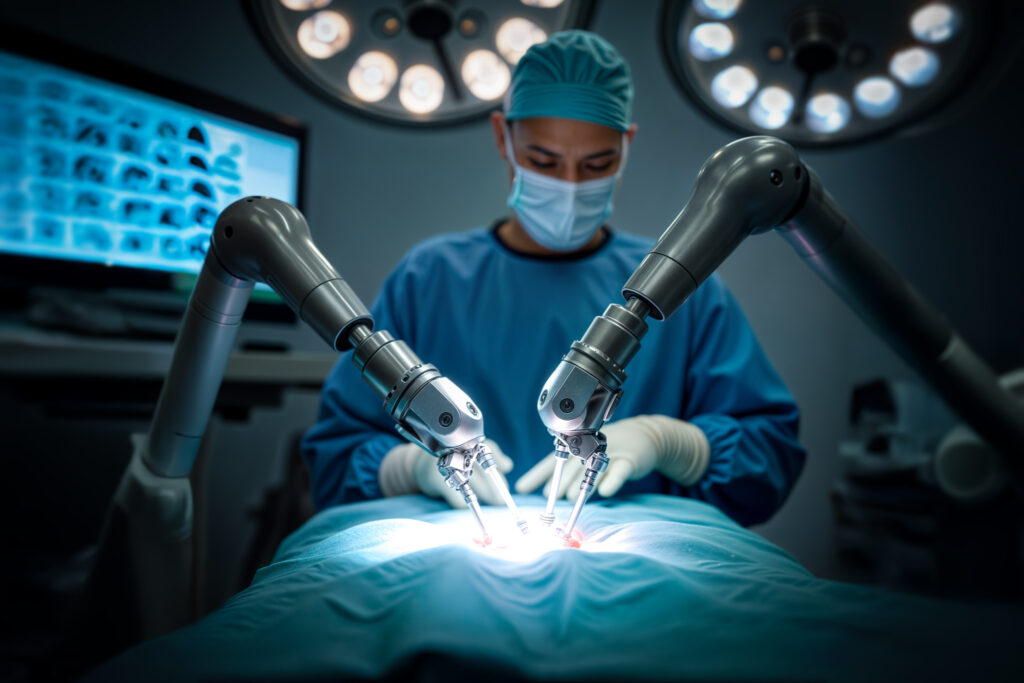Can robots replace Humans:
Improving the quality of care and surgical outcomes through technological innovations

Overview
In the rapidly evolving landscape of modern healthcare, robotic systems and intelligent technologies are no longer futuristic concepts—they are becoming essential partners in delivering safe, precise, and efficient care. From robotic-assisted surgeries to AI-powered diagnostics, these innovations raise critical questions: How far can technology go in replacing or augmenting human skills? Can machines match the intuition, empathy, and decision-making of healthcare professionals? This panel explores the balance between automation and the human touch in clinical practice.
Key Discussion Points:
- The current and emerging capabilities of surgical robots in minimally invasive procedures.
- How AI and machine learning are transforming diagnostics, decision-making, and workflow optimization.
- Ethical and legal implications of replacing human roles in clinical care.
- Training the next generation: surgeons and physicians in the age of robotics.
- Patient safety, cost-effectiveness, and the role of human oversight in tech-driven healthcare.
- Limitations of robotics—what can’t (or shouldn’t) be replaced?
Panelists

Dr. Naveed Afzal
MBBS, FRCS, FRCS Urol, Dip Urol, FEBU
Dr. Afzal is a highly experienced consultant urologist specializing in robotic-assisted urological procedures and minimally invasive surgery. He holds postgraduate training in urology from Stanford University (USA) and has pioneered robotic radical prostatectomy and HIFU treatment techniques in West Dorset.
His clinical interests include prostate and renal cancer, urinary stone management, and advanced robotic surgery, with extensive experience in TRUS biopsy, template biopsy, PCNL, laparoscopic procedures, and HIFU. He is recognized for chairing the multidisciplinary prostate cancer team and for delivering one of the region’s fastest-access prostate cancer pathways.

